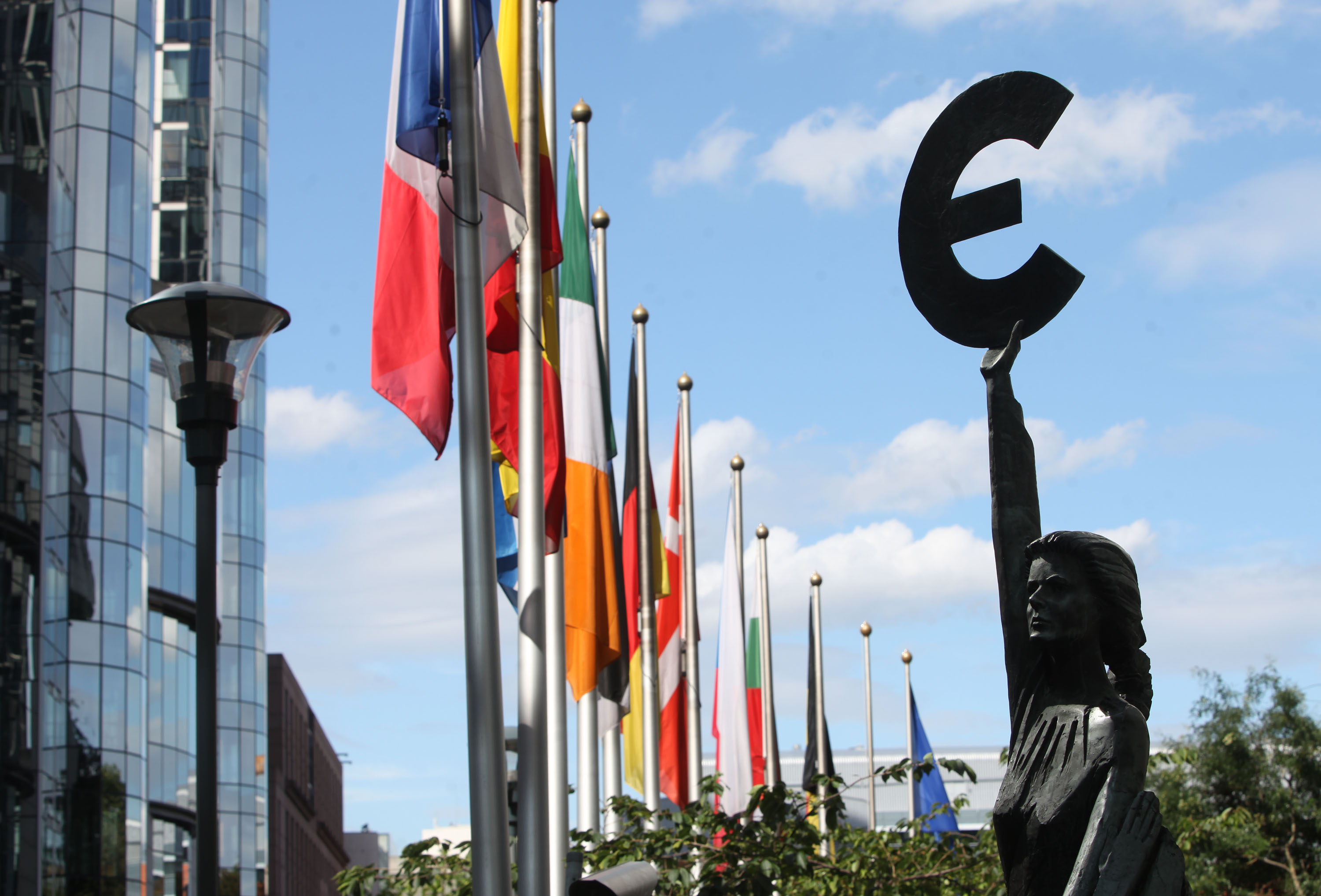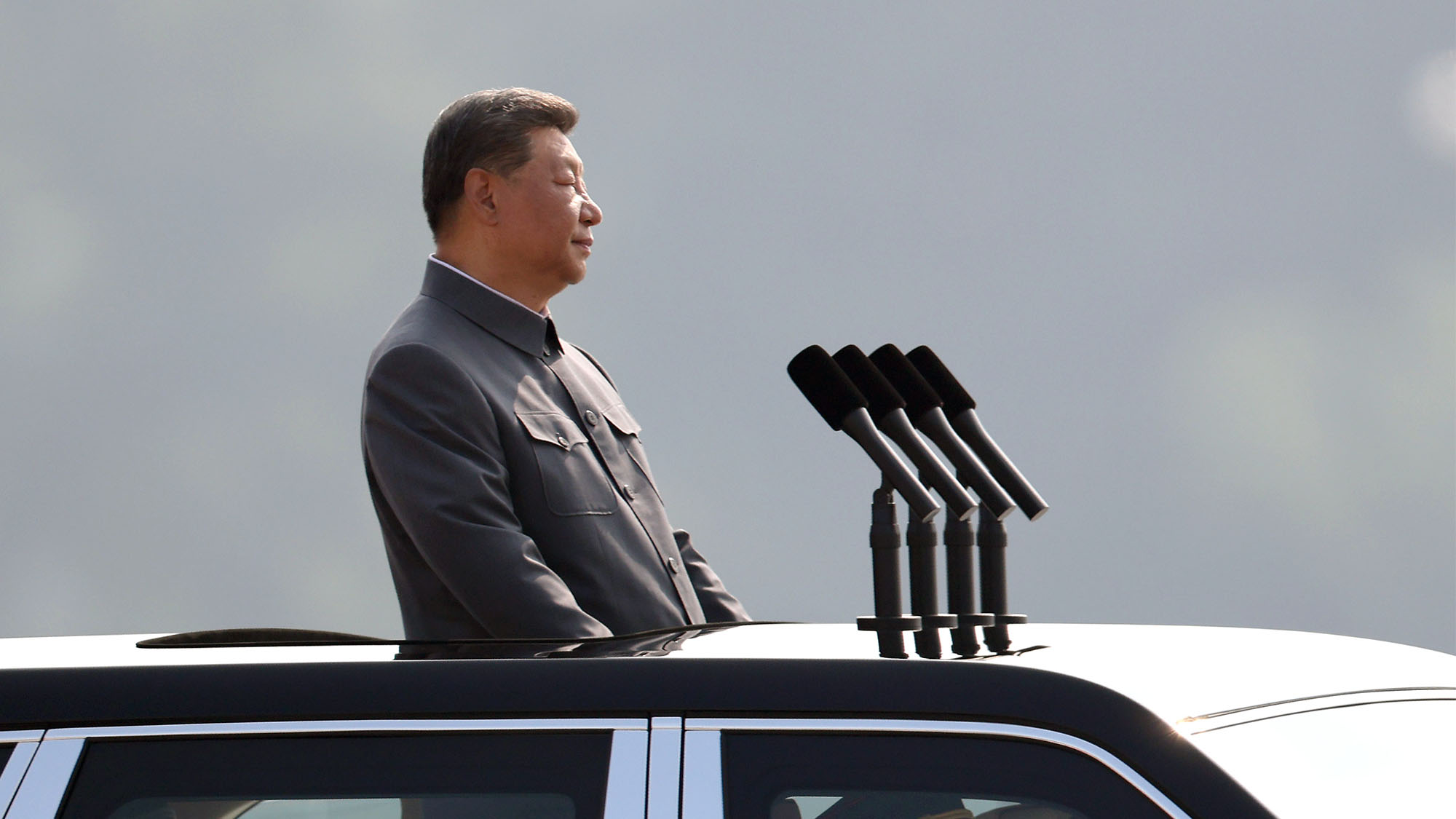Is Europe ready to revolt against its small-minded, neoliberal bureaucracy?
It sure seems like it


Money can't buy everything — greatness least of all.
That's the harsh lesson our mighty policymakers are about to discover in Europe, where the human hunger for greatness has deepened the eurozone's currency crisis in a way that economists refuse to understand.
With a deadline between Greece and its creditors looming, U.S. Treasury Secretary Jack Lew recently warned EU officials to strike a broad deal at once to keep floundering Greece on the euro. "My concern is not the goodwill of the parties — I don't think anyone wants this to blow up — but ... a miscalculation could lead to a crisis that would be potentially very damaging," he intoned at the London School of Economics.
The Week
Escape your echo chamber. Get the facts behind the news, plus analysis from multiple perspectives.

Sign up for The Week's Free Newsletters
From our morning news briefing to a weekly Good News Newsletter, get the best of The Week delivered directly to your inbox.
From our morning news briefing to a weekly Good News Newsletter, get the best of The Week delivered directly to your inbox.
Lew's physical audience was a group of students, but his remarks reverberated with the world's top economists. They especially struck a nerve in America, where the stymied negotiations over debt-saddled, austerity-plagued Greece's financial future look like yet another repeat of centuries-old patterns of European vanity and parochialism.
"There's a definite 1914 feeling to what's happening," Paul Krugman despaired, "a sense that pride, annoyance, and sheer miscalculation are leading Europe off a cliff it could and should have avoided." Europeans strike Krugman as caught in the grip of a mysterious disease. "[T]here seems to be more to it than lack of trust," he puzzled. "Some major players seem strangely fatalistic, willing and even anxious to get on with the catastrophe — a sort of modern version of the 'spirit of 1914,' in which many people were enthusiastic about the prospect of war."
Economics couldn't explain how 100 years of post-Napoleonic nationalism aroused Europe's hunger for greatness to the point of global conflict. And it can't explain how today, Europe's apparent "fatalism" toward a Greek exit is really a revolt against the closed horizon of a foreordained world dictated step after dreary step by the dutiful mechanics of the neoliberal order's massive bureaucracy.
As any student of Greek philosophy can tell you, the true nature of human greatness is open to discussion. But in real life, we know greatness when we feel it, and in Europe, still acutely sensitive, its absence is sorely felt. Even now, even on the "post-historical" continent, people are hungry for greatness. They remember what it's like — and how it gives access to dignity in a way that recedes when the experience of greatness is lost.
A free daily email with the biggest news stories of the day – and the best features from TheWeek.com
Especially in today's Europe, where transnational government has secured the peace but left human ambition in pieces, many have begun to see through one of the great liberal illusions of the late 20th century: that we can experience greatness by cultivating a relationship with a large, diligent government, run by expert policymakers, and dedicated to the maturation of its own administration.
Many Europeans are rediscovering that the painstaking management of an open-ended currency crisis cannot be what political life is all about. There must be more to it than this narrow, lowering spectacle. Worse than the austerity of the banks is the austerity of the soul. The Grexit struggle lays bare the deeper crisis: Europe's economic policy class has lost its authority over the spirit of Europe.
If the spirit of 1914 is haunting Europe, it's because Europeans ultimately disdain the two main ways economics can open onto greatness: through America's expansive democratic exuberance on the one hand, and through Krugman's infinite elite patience on the other. The first opens greatness up to the many; the second, to the few. Unnervingly, not even our most powerful public or private-sector economists can talk Europeans into shaking off their disdain for our gloriously transactive ways. As 21st-century Europe will continue to show us anew, the hunger for greatness is not one of humanity's solvable problems.
James Poulos is a contributing editor at National Affairs and the author of The Art of Being Free, out January 17 from St. Martin's Press. He has written on freedom and the politics of the future for publications ranging from The Federalist to Foreign Policy and from Good to Vice. He fronts the band Night Years in Los Angeles, where he lives with his son.
-
 The Beckhams: the feud dividing Britain
The Beckhams: the feud dividing BritainIn the Spotlight ‘Civil war’ between the Beckhams and their estranged son ‘resonates’ with families across the country
-
 Quiz of The Week: 24 – 30 January
Quiz of The Week: 24 – 30 JanuaryQuiz Have you been paying attention to The Week’s news?
-
 The Week Unwrapped: Why is China clearing out its generals?
The Week Unwrapped: Why is China clearing out its generals?Podcast Plus, can the Conservatives win back the centre? And what’s gone wrong with Britain’s hearing aids?
